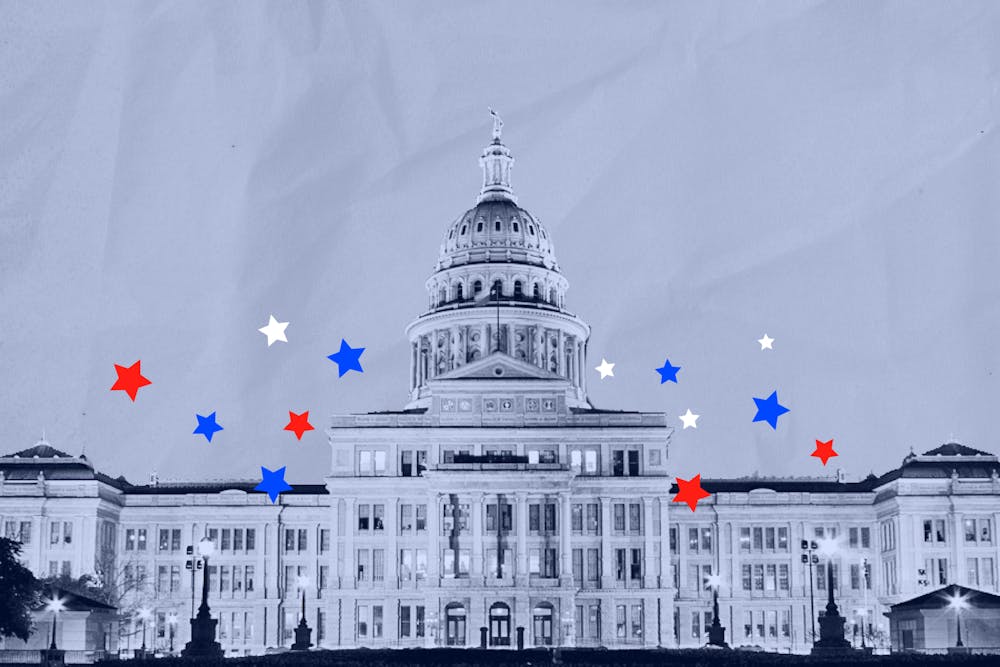2020 has been undeniably hectic—novel challenges arrive each month, almost like we’re living through a real–life version of Jumanji. Yet, despite—or perhaps because of—all these problems, one thing is on everyone’s minds: the presidential election.
With election day less than a month away, you’d have to be living under a rock not to constantly hear about the race. But as campaigns get more complex, personal attacks are made, and views on political parties become more polarized in the country, there’s one explanation everyone seems to give: ”That’s politics.”
A24’s documentary, Boys State, gives insight into why this simple yet loaded explanation is accepted by the public to forgive ridiculous behavior from politicians. The film, directed by Amanda McBaine and Jesse Moss, follows a program for boys sponsored by The American Legion.
The documentary specifically looks at 2018's Texas Boys State, where hundreds of boys gathered to learn more about politics. The program is held in every state (with the exception of Hawaii) every year, and there is a version of Girls State as well. Participants get randomly assigned into two groups—Federalists and Nationalists—and get the opportunity to collectively build a party platform and run for office.
Boys State closely follows four main participants—Ben, René, Robert, and Steven—as they navigate the program and go through the election process. Overall, the film has some positive themes: believing in oneself, coming together for a common purpose, and elevating the voices of participants who are from minority backgrounds. There is a heart–warming moment in which Ben, a double amputee who uses prosthetics, discusses why he wants to be involved in politics. His dream is to serve the people, but since he can’t join the army, he sees politics as a way to do so.
Many of the scenes are also relatively comical; they would undoubtedly cause a suburban mom to laugh and dismiss their behavior by saying “boys will be boys.” The guys randomly drop to the floor to do push–ups, talk about "masculinity," debate whether policy should be passed to ban pineapple on pizza, and wonder whether “penis measuring [is] too vulgar for government discourse.” Ultimately it was decided that it was, in fact, not too vulgar, as Robert said in his speech something along the lines of “out of respect for you I will not be taking out the measuring tape and measuring my accomplishments."
And it’s true—they are just boys—which is probably why it’s so alarming that their behavior seems to represent the current political climate.
As the program progresses, we hear from boys who think “Clinton–loving, abortion–supporting, fake–news supporting snowflakes [want] to take away [their] guns”; boys who publicly state they are pro–life, only to admit to the camera that they are actually pro–choice but they are catering to their conservative audience; boys who confidently say that universal background checks are a thing (when they’re not) to sway their peers towards a political stance; and boys who are fervently loyal to the party they were randomly placed in, regardless of its stance on policy.
At the end of the day, the process of the election seems to be more concerned with ego and getting elected rather than actual policy. At one point, one of the candidates for governor, Steven, starts to get criticized because he had previously attended “March For Our Lives.” His peers used this as a tactic to state that there was no way he could be pro–gun if he had attended one of these marches. Another group of boys created an Instagram account in an attempt to impeach René—the Nationalist State Party Chairman and one of the few Black participants—and soon started to post racist content.
Ben, who was a part of the Federalist party, justified some of these behaviors: “A message of unity, as good as it sounds, and as good as it ultimately is for our country, is not winning anyone any elections. You have to use personal attacks and you have to find divisive issues in order to differentiate yourself at all.”
Boys State demonstrates that when campaigns turn dirty, when public officials act inappropriately, when personal attacks are made, we are taught to justify this behavior with the throw away phrase: “That’s politics.”
At the end of the film, we hear from René, who says something that is chilling and undeniably true: “I think he’s a fantastic politician… but I don’t think fantastic politician is a compliment either.”

